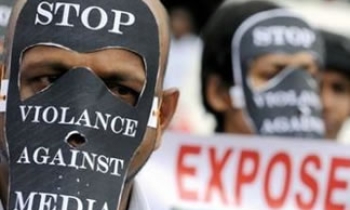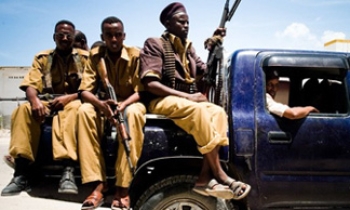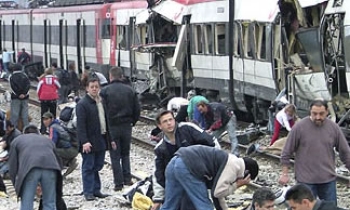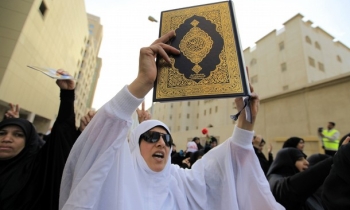During the reign of Saddam Hussein, the Iraqi newspaper Azzaman could only be published in London. Fleeing the government's muscular arm in the 1990s, the newspaper's founder, former Hussein aide Saad al-Bazzaz, was forced to run his media operation out of Europe for nearly a decade.
But after Mr. Hussein's expulsion in 2003, Mr. al-Bazzaz set up offices in Baghdad, and he has since been busy running what is considered Iraq's most credible Arabic publication. With a daily circulation of more than 75,000, Azzaman is a modern journalistic success story and a publication that has added greater depth to the political debate in Iraq.
Among the relatively few positives to come out of Iraq in the last four years are the growing size and autonomy of its press system. While the U.S. invasion of Iraq has caused chaos in so many of the country's sectors, the removal of Saddam Hussein has brought a semblance of order and purpose to Iraqi journalism.
For nearly three decades during Mr. Hussein's supremacy, Iraqi journalists existed only to applaud and glorify the dictator and his imps. Criticism of the government's higher reaches and investigative reporting were often deadly undertakings. Supervision was fierce. Mr. Hussein's son Uday was director of all Iraqi radio and TV stations, owned 11 of Iraq's newspapers and was the head of the Iraqi journalists union.
With Mr. Hussein and his sons gone, journalists in Iraq are enjoying freedom and publication opportunities unimaginable under their previous rulers. Reporters Without Borders announced in 2003 that "a wind of freedom has gusted through the Iraqi media. ... Genuine diversity and openness are now possible."
During Mr. Hussein's rule, fewer than 40 Arabic news publications existed; today, they number in the hundreds. "Iraqi readers have been bombarded with new publications," Arab journalist and scholar Noha Mellor wrote in her 2005 book, The Making of Arab News. And Iraqis are voracious news consumers, Ms. Mellor writes, welcoming the burgeoning number of available news outlets.
In 2002, the year before Mr. Hussein was removed, human rights advocate Freedom House rated Iraq as one of the worst nations in the world in its annual survey of press freedoms. Placing Iraq near the likes of North Korea and Rwanda in the rankings, Freedom House explained that criticism of Saddam Hussein and his powerful government appointees was simply not an option for Iraqi reporters. Since then, Iraq has been steadily improving its journalistic standing in the Middle East and around the world.
Now, the greatest impediment to free expression in Iraq is not government censorship but rampant lawlessness. Iraq is by far the most dangerous country in the world for journalists. According to the Committee to Protect Journalists, 23 reporters died in Iraq in 2005, 32 lost their lives in 2006 and, as of this writing, 19 have died this year. Scores of reporters have also been kidnapped, beaten and threatened by militants during this time.
Still, despite the sectarian brutality that often forces foreign and Iraqi reporters to write their dispatches from hotels and offices, press freedoms in Iraq will likely continue to grow. Journalists in Iraq will not abide a return to their country's practice of crushing political criticism and open debate. Once people taste freedom, they rarely hunger for anything less.
For their part, too, Iraqi news consumers will not likely permit anything but the continued expansion of journalistic discourse in their country. One of the first things many Iraqis did after Saddam Hussein's regime fell in 2003 was rush out and purchase satellite dishes, in order to view news that wasn't produced by the Hussein family.
Iraqi journalists and their audiences are doing many of the right things to encourage a watchdog press and open debate. It is tempting to wonder how much more progress will be made if U.S. and Iraqi leaders ever get a handle on things over there. With stability in Iraq so fragile, it is heartening to know that a vocal press - that indispensable democratic pillar - is coming to life.
Justin Martin is a doctoral student in the school of journalism and mass communication at the University of North Carolina, Chapel Hill. His e-mail is martinjd@email.unc.edu.









